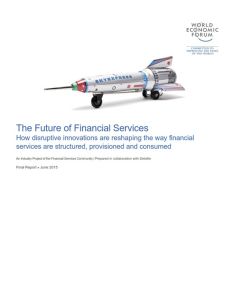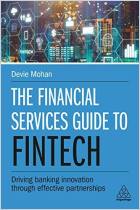Join getAbstract to access the summary!

Join getAbstract to access the summary!
R. Jesse McWaters, Giancarlo Bruno, Abel Lee and Matthew Blake
The Future of Financial Services
How Disruptive Innovations Are Reshaping the Way Financial Services Are Structured, Provisioned and Consumed
World Economic Forum, 2015
What's inside?
From Bitcoin and PayPal to crowdsourcing and peer-to-peer lending, the financial services industry faces sweeping change.
Recommendation
For the financial services industry, change is coming fast and furiously. This thorough report by the World Economic Forum takes a look at the upheaval. The study draws no firm conclusions about exactly how the world of banking and finance might change, but it outlines possible outcomes for the banking, credit card, insurance, capital raising and investment industries. It examines a number of emerging and possibly disruptive technologies, including Bitcoin and PayPal, crowdsourcing, and peer-to-peer lending. The most likely scenario, the report seems to suggest, is that traditional financial institutions will have to adopt some of the new ideas. getAbstract recommends this presentation, written for the financial professional, to industry executives and investors.
Summary
About the Authors
The World Economic Forum is an independent global organization that engages leaders of business, politics, academia and society with the mission of improving the state of the world.




















Comment on this summary